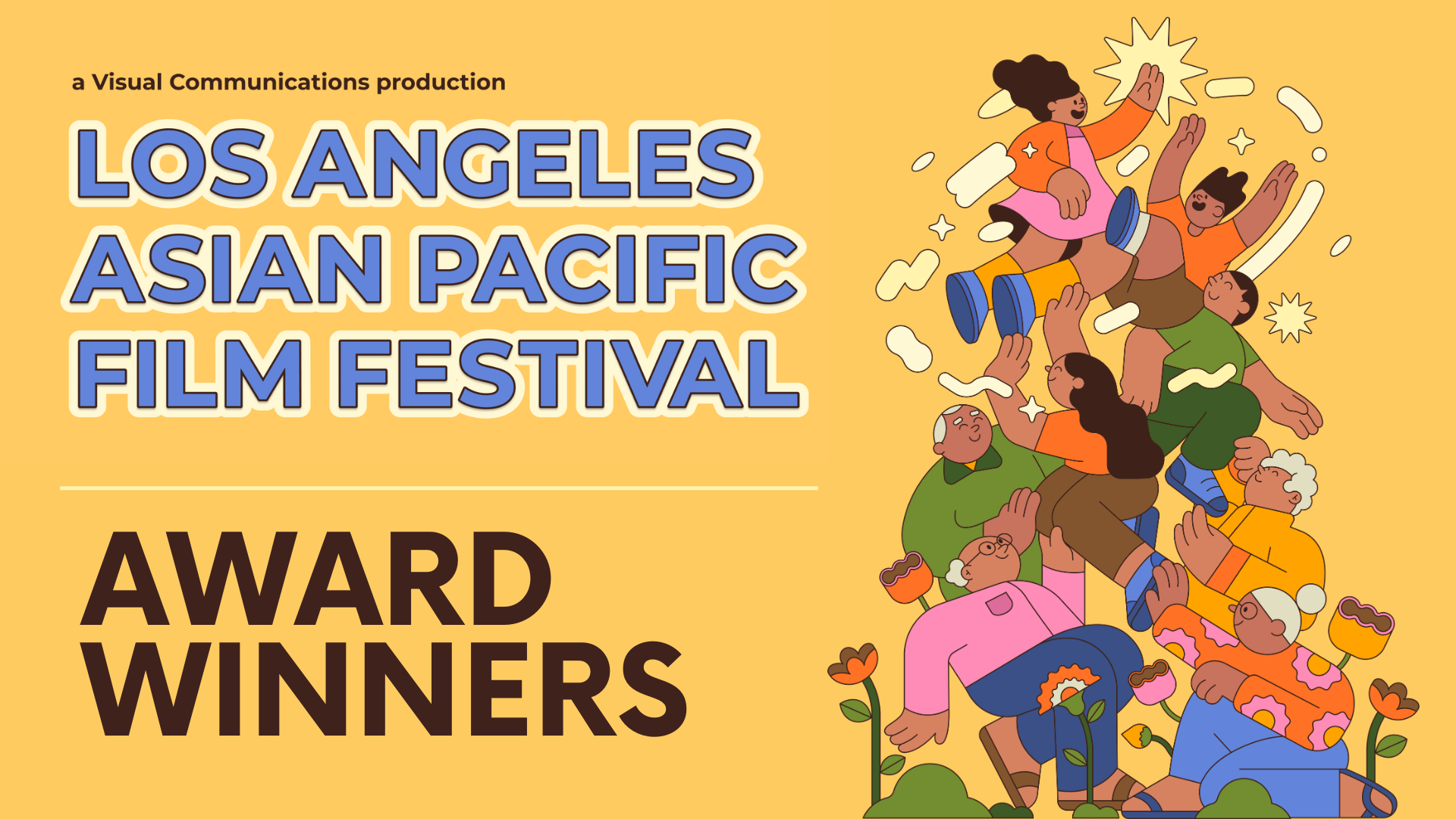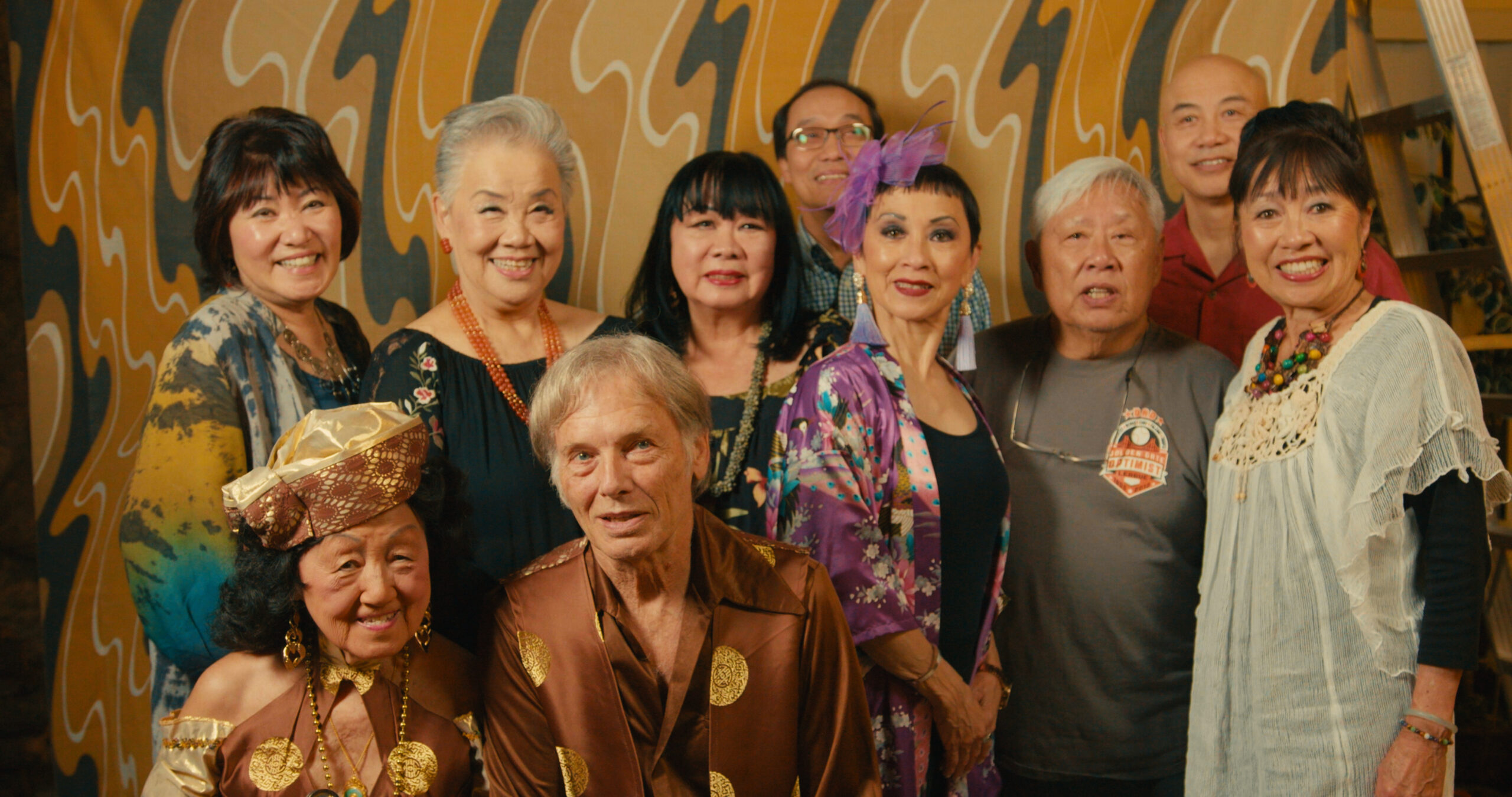GRASSROOTS RISING: A Legacy of Labor, Love, and Liberation
May 22, 2025

Written by Eseel Borlasa, After Bruce
Two decades ago, a film quietly but powerfully captured a rising tide of labor activism in Los Angeles’ immigrant communities. Grassroots Rising, directed by Robert C. Winn and produced by Visual Communications, marked a turning point in Asian American documentary filmmaking-one that refused to flatten working-class stories into pain or pity, but instead lifted them up as blueprints for collective power.
Grassroots Rising honors the working-class roots of the Asian American experience, highlighting the resurgence of grassroots political activism among communities in Los Angeles. The film underscores the power of collective action in advocating for labor rights and social justice. Today, these themes resonate strongly as migrant workers continue to face significant challenges. Unsafe, exploitative work conditions, and even human trafficking, remain deep-seated issues. Natural disasters and economic disruptions have led to disproportionate job losses and vulnerability for immigrant domestic and service workers, and an increasing fear of deportation has deterred many from speaking up for their legal and human rights.
The legacy of Grassroots Rising is a powerful testament to the importance of community-based organizing in advocating for migrant workers’ rights. As we mark the film’s 20th anniversary, it calls us to recommit to supporting and uplifting the voices of those who continue to fight for justice in the face of adversity.
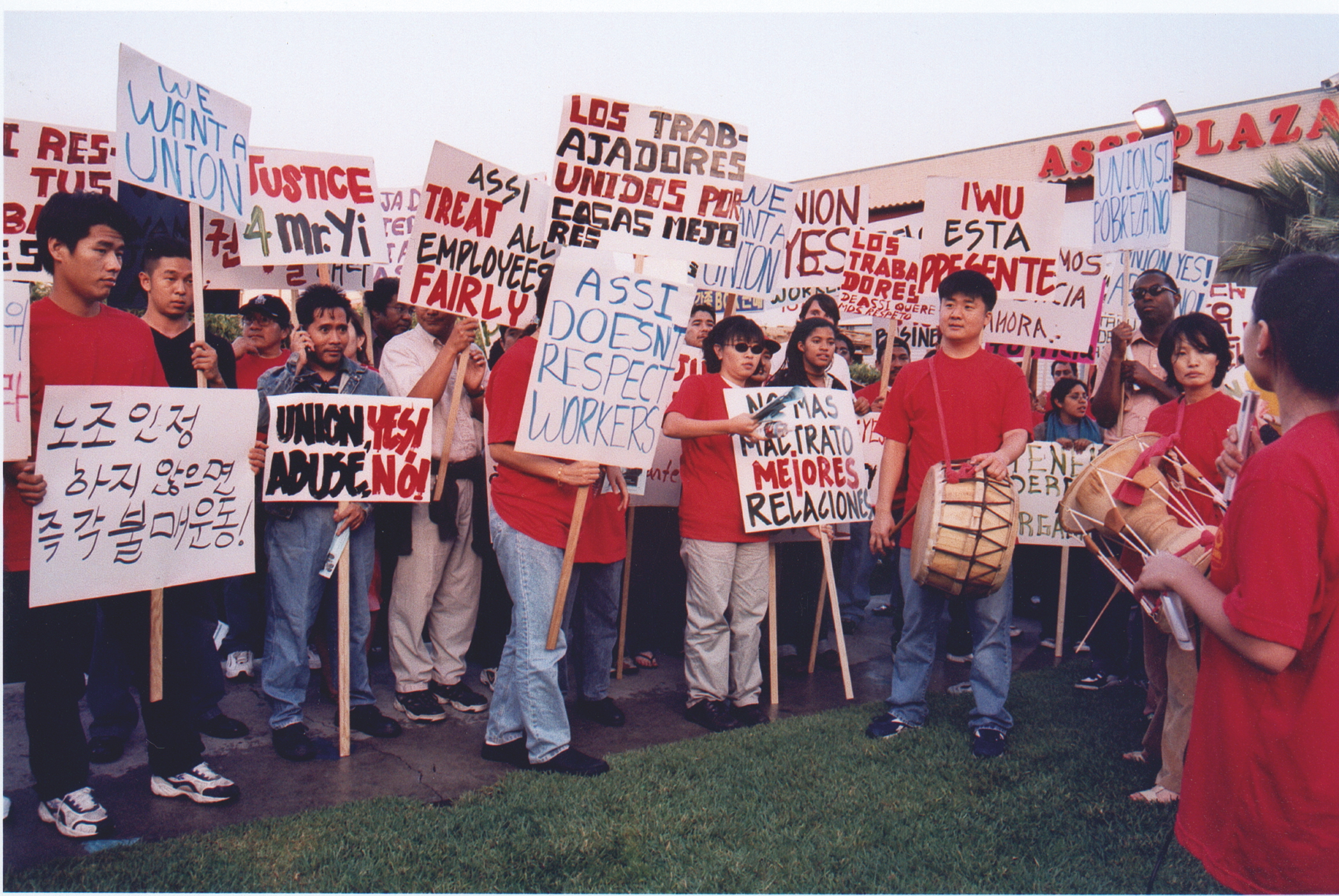 Originally released in 2005, the film returns in 2025 with renewed urgency and relevance. Centering the voices of Pilipino, Thai, Chinese, Korean, and Latino workers — from domestic laborers and restaurant servers to sweatshop survivors and union organizers — Grassroots Rising documents a time when multiracial movement building was not a theory, but a practice forged on picket lines and protest marches. It also reminds us that the fights for worker’s rights, immigrant dignity, and racial justice have long been interconnected.
Originally released in 2005, the film returns in 2025 with renewed urgency and relevance. Centering the voices of Pilipino, Thai, Chinese, Korean, and Latino workers — from domestic laborers and restaurant servers to sweatshop survivors and union organizers — Grassroots Rising documents a time when multiracial movement building was not a theory, but a practice forged on picket lines and protest marches. It also reminds us that the fights for worker’s rights, immigrant dignity, and racial justice have long been interconnected.
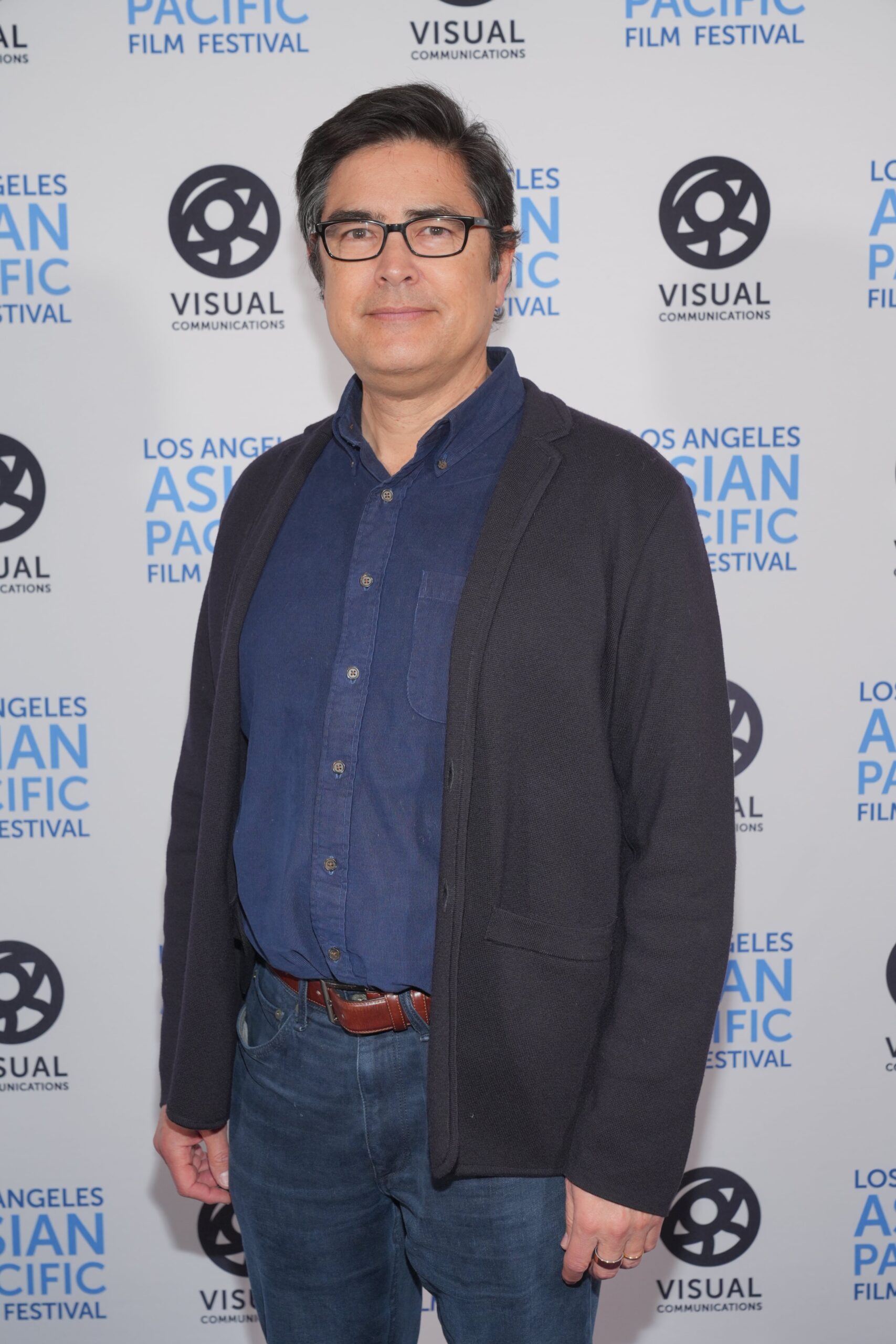
Robert C. Winn at the 2025 Los Angeles Asian Pacific Film Festival
At the heart of this project is director Robert C. Winn, a Brooklyn-based filmmaker and strategic advisor in the documentary field. A trained lawyer (JD, Yale) and storyteller (MFA, USC), Winn brings a rare blend of rigor and heart to his work. As a Japanese American son, parent, and longtime community collaborator, Winn approaches documentary as a form of cultural labor that preserves memory while fueling future movements.
“I vividly remember when Linda Mabalot, the formidable and much-missed Executive Director of Visual Communications, and Leslie Ito asked me to direct a documentary about Asian American worker organizing,” Winn shares. “More than an invitation to make a film, it was a call to step into a legacy of community-based storytelling at the heart of VC’s mission.”
From its inception, Grassroots Rising was grounded in collaboration — with community organizations, cultural workers, and generations of labor activists. “We wanted to explore the centrality of working class struggles and labor organizing to the Asian American experience,” says Winn. “We were so fortunate to collaborate with powerhouse grassroots organizations like Korean Immigrant Workers Alliance, Pilipino Workers Center, Garment Worker Center, Thai Community Development Center and the Asian Pacific American Labor Alliance, who continue to do groundbreaking work organizing low wage workers overlooked by larger institutions.”
The production itself mirrored the movement it sought to uplift. “Watching it again, I was struck by how fresh and relevant it still felt. It wasn’t just a time capsule,” Winn reflects. “That’s because it was made from, by, and for the community. As a VC production, it embodied what makes VC so special: our cultural labor was in the service of and in collaboration with the community on the ground, and that was deeply meaningful to the team.”
Throughout the film, the stories of everyday workers are told not with spectacle, but with care and in deep relation to one another. “We wanted to highlight these great groups, but we were also thinking about how the issues and the grassroots organizing wove together different communities, and also how that fit into a longer lineage of AAPI labor organizing. As Glenn Omatsu says in the film, ‘Asian American history is labor history.’”That intentionality also extended to how the team approached community relationships. “It was very much not a helicopter approach, where outsider filmmakers fly in and extract stories,” Winn says. “I think this project worked because of Visual Communications’ long standing commitment to the community. This credibility helped us to do the ongoing work of earning the right to gather and share these stories.”
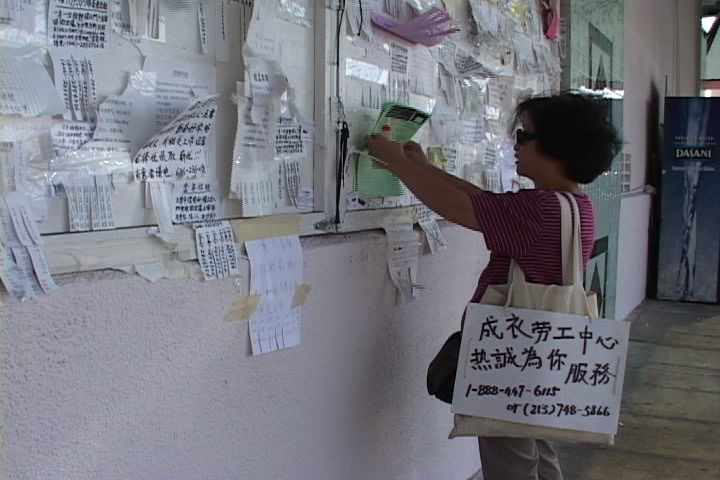 He adds: “Some of the people in the film were working long, long hours in horrible conditions, and were very vulnerable in many ways. Sharing their stories took courage, then and now. We were determined to honor that.”
He adds: “Some of the people in the film were working long, long hours in horrible conditions, and were very vulnerable in many ways. Sharing their stories took courage, then and now. We were determined to honor that.”
Rather than defaulting to a standard historical format, Grassroots Rising takes a different approach: layered, artistic, and poetic. “We didn’t want a conventional linear and didactic documentary,” Winn explains. “We wanted to capture what was special to us about these issues and the power of the community. We wanted to get at those different layers, and also wanted to contribute what we, as artists, could offer. And in a respectful way, not centering the artist, but trying to think about how art can serve the people.”
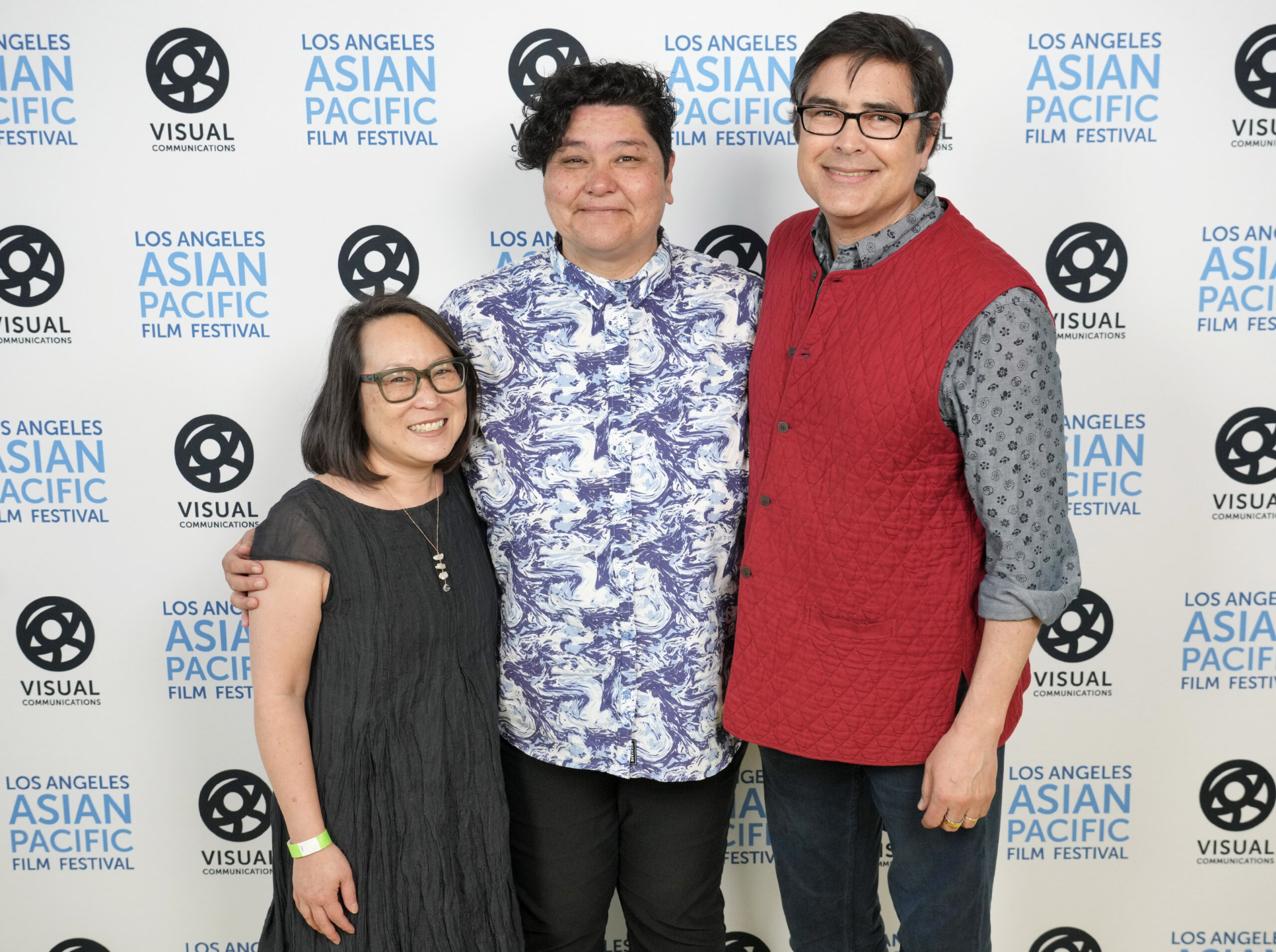
(L-R): Leslie Ito, Alison de la Cruz, Robert C. Winn at the 2025 Los Angeles Asian Pacific Film Festival
Narrated by spoken word artist Alison de la Cruz and scored by Woody Pak, the film invites audiences into something larger than testimony; it becomes a movement in itself. “Allison is an incredible spoken word artist, and also deeply rooted in community. All these different layers interweave.”
Winn credits Linda Mabalot as a powerful catalyst, calling her, “the generous spark that made this project take flight.” He also uplifts collaborators like Leslie Ito, Tim Jieh, Glenn Omatsu, Abe Ferrer, Amy Kato, John Esaki, Lushun Quon, and so many others who shaped the project behind the scenes. “Together with our participants…We made a beautiful film. Which is to say: we harnessed our storytelling skills to build community, strengthen bonds of solidarity, and ensure that voices long marginalized were heard and valued.”
At its 20th anniversary screening, Grassroots Rising came full circle. Winn said, “It was deeply moving to see participants return and reflect on the campaigns and powerful voices captured in the film and how much need there is to continue the work today. One of them was Chancee Martorell who is still leading the Thai CDC and fighting tirelessly for the community and against trafficking.”
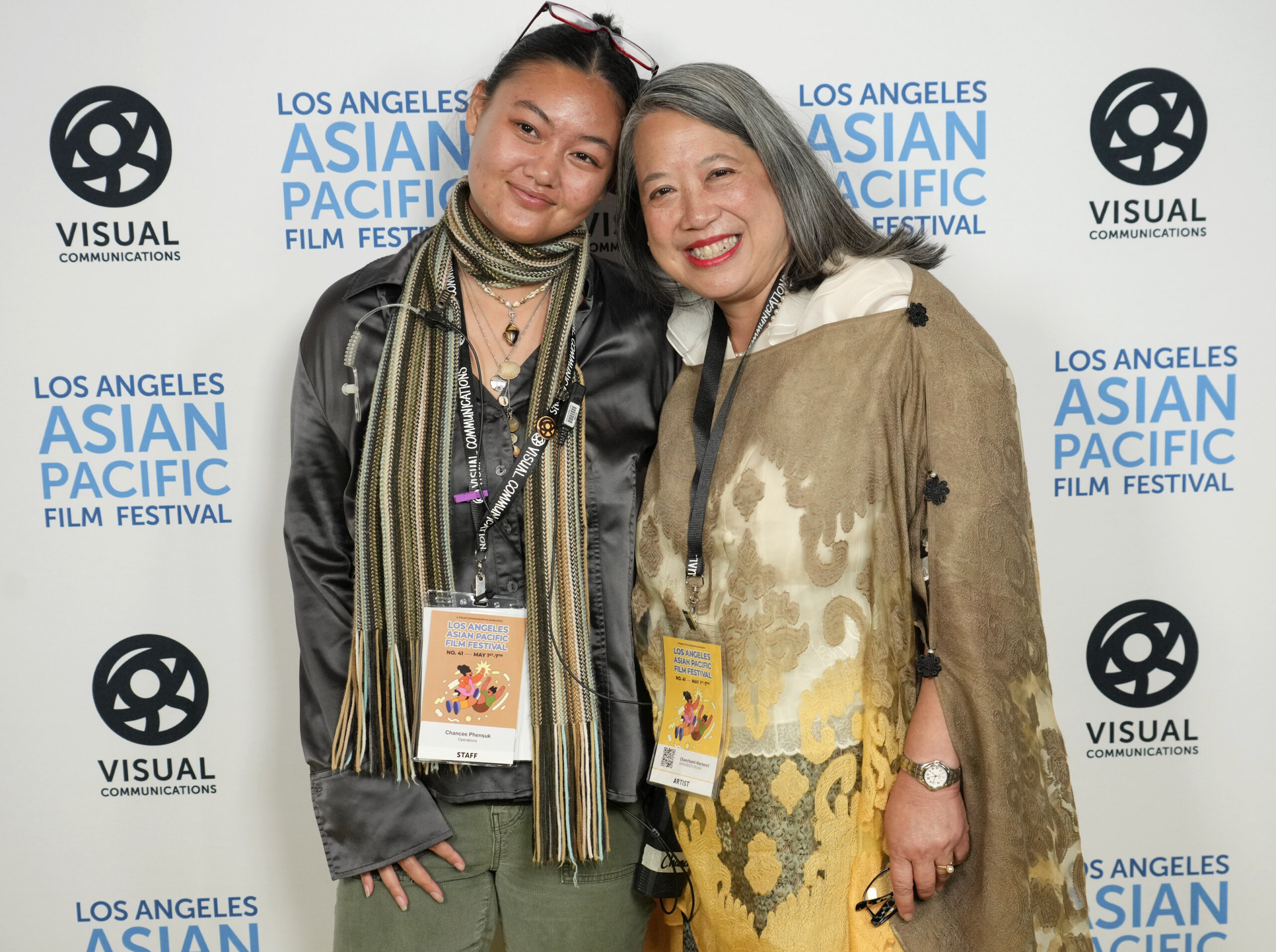
Chancee Phensuk and Chancee Martorell at the 2025 Los Angeles Asian Pacific Film Festival
What happened next was something no one expected. A young woman who was part of the festival staff introduced herself, also named Chancee, and this was no coincidence. Her mother was one of the Thai El Monte sweatshop workers that Martorell and others had helped rescue from involuntary servitude. Her mother named her Chancee out of gratitude. This year she volunteered at the LAAPFF and reconnected with her namesake at the screening. “It was so heartwarming,” said Winn. “It was a wonderful full-circle moment, and a reflection of how Visual Communications builds community.”
For Winn, storytelling remains a radical act. “Telling our own stories, including stories from the archives, is necessary and powerful cultural labor. It is a vital act of preservation, collective meaning-making, and defiance,” he writes. “Our histories breathe and move with us, illuminating paths toward the future we are still forging.”
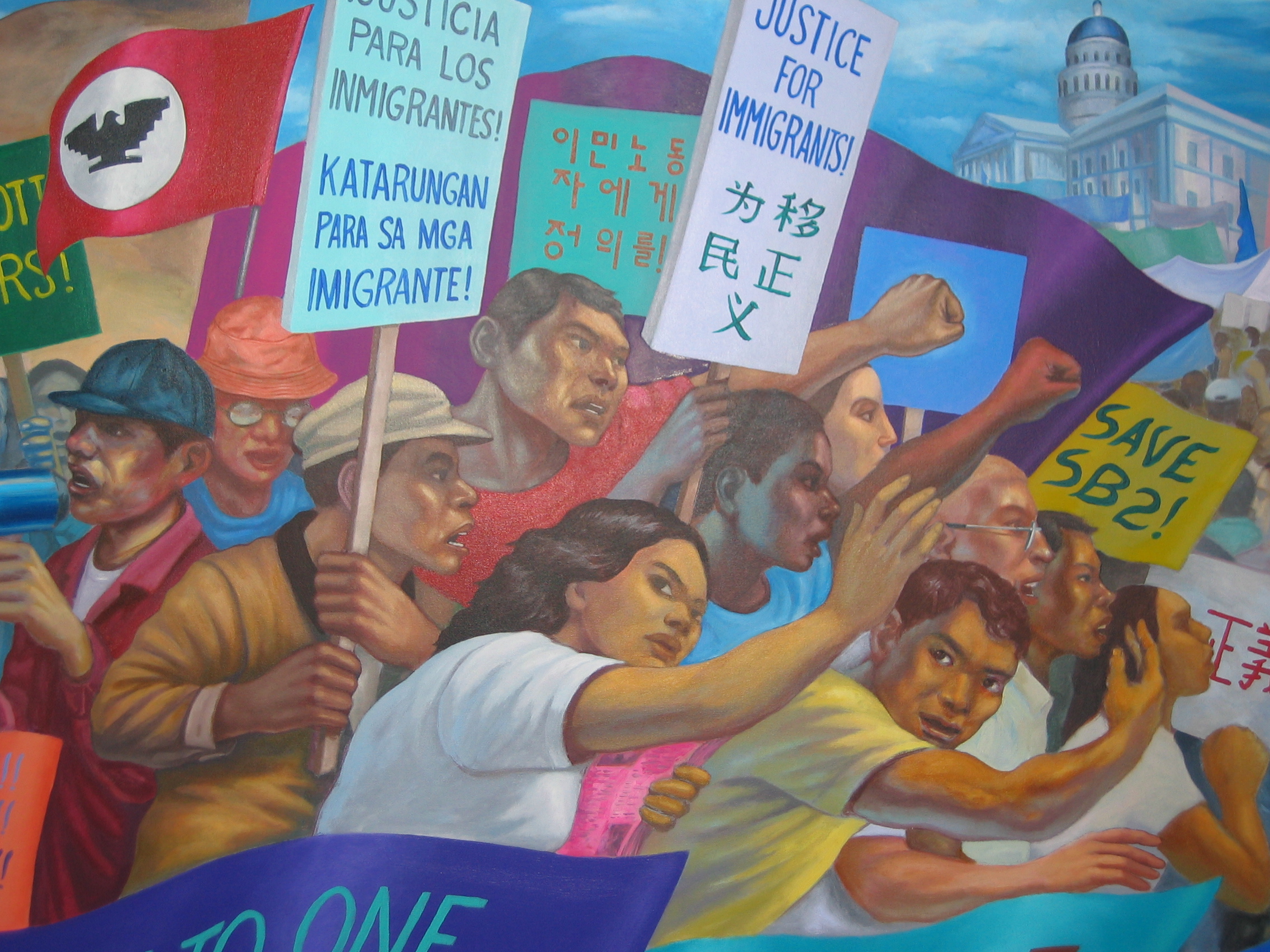 Grassroots Rising is more than a historical artifact. It is a provocation and an offering. In a time of resurgent labor movements, widening inequality, and ongoing erasure of AAPI working-class voices, this film remains a call to action, challenging us to reclaim and activate our histories.
Grassroots Rising is more than a historical artifact. It is a provocation and an offering. In a time of resurgent labor movements, widening inequality, and ongoing erasure of AAPI working-class voices, this film remains a call to action, challenging us to reclaim and activate our histories.
“I think this kind of cultural labor is vital, especially now,” Winn says. “Storytelling and organizing and movement-building are intertwined acts of courage. Each reinforces the other. Together, they show us that change is built not just on action, but on the truths we tell and the identities we claim.”
As we celebrate the return of Grassroots Rising, we also affirm that justice, like storytelling, is never finished but always unfolding.

 tweet
tweet share
share